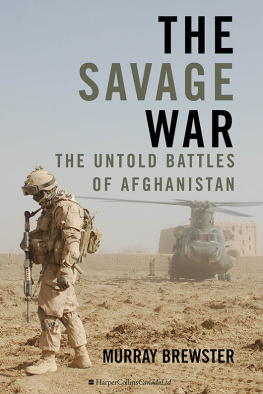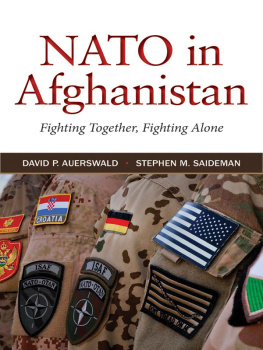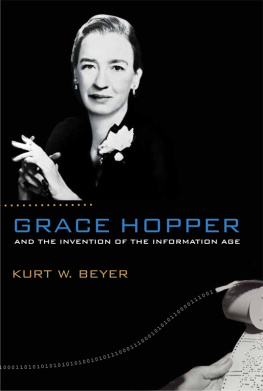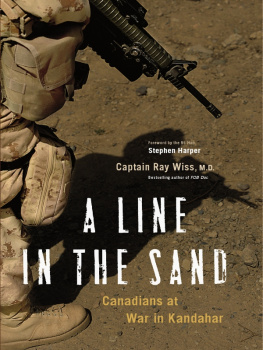To My Family...
A light summer rain pecked at the assembly of veterans, dignitaries and villagers in Pourville, France, on a warm summer day in August 2007. A crowd had gathered at the war memorial beside the seaside community's idyllic, stone church, just behind the empty, silent beach. Everyone was there to listen to Canada's Veterans Affairs minister reflect on the long-past, but not forgotten, battle of Dieppe. Soldiers who'd survived the slaughter huddled under umbrellas and were draped with see-through, plastic, disposable bags to keep the rain off. Everyone rightfully fussed over them. They listened solemnly and politely as Greg Thompson spoke. On that horrific day in August 1942, 903 Canadians died. With the hindsight of history, it is celebrated as a victory.
Some of the vets seated in wheelchairs looked as though they'd nodded off until the minister intoned the well-worn narrative: For every life sacrificed at Dieppe, ten lives were saved two years later at D-Day by what the Allies learned. You could sense some of the old soldiers shifting uncomfortably in their seats before the sound of a metal cane banging defiantly on the pavement rang through the crowd.
Bullshit, said one vet, his jowl-creased face red with anger.
He growled loud enough that some of Thompson's staff standing nearby cringed and then smiled painfully, but the minister never missed a beat. He kept right on speaking. I was never sure whether he'd heard the protest.
The reality of that vet's experience did not match the politically acceptable narrative, the same narrative that has been handed down to us through the years. Canadian soldiers who lived through the nightmare of the Balkans in the 1990s would say the same thing. They were dropped into the middle of a shooting war while everyone back home celebrated and called it peacekeeping. The disconnect between the stories we tell ourselves and the gritty, often uncomfortable reality was my prime motivation for what you are about to read.
The war in Afghanistan is like few other wars, in terms of its length, complexity, ignorance and sheer brutality. It has featured aspects and events that even today defy understanding. Despite boatloads of newspaper ink and thousands of hours of airtime, our collective appreciation of what the country has been through remains painfully shallow and fleeting.
Many of my recollections of my time covering Afghanistan have been refreshed through the time and generosity of the hundreds of people whom I've interviewed. Some of them have been quoted anonymouslyor on background, as it's called in the world of journalism. Without their patience, contributions and courage, some of the elements of this narrative would not have been possible. In almost all cases, these sources are senior government officials, diplomats or officers who are still serving or whose positions depend upon absolute discretion. They have contributed, without malice, to my understanding of this war, and hopefully to yours as well.
The country's combat mission in Afghanistan dragged on for more than five years and throughout that time I had the privilege and sometimes the burden of seeing it up close, both on the mean streets of Kandahar and in the equally hard-nosed back rooms of Ottawa. Sometimes, it feels as though I've covered nothing but Afghanistan. What you are about to get is my unvarnished take on what I've witnessed. Make no mistake: this is not a history book. I'll leave history to the historians to sort out. My objective in writing this account was to give you a sense of what it looked and felt like to be in the midst of the tempest. If what you are about to read makes you angry, makes you cry, makes you laugh or even prompts you to fling this volume across the room, then I will have accomplished my goal. Bronze it or burn it when you're done, but read it. Because war and the blood spilled these last few years is too important to forgetor be left to a cyclone of spin. Despite what some would have us believe, war is never neat, never tidy, never fully understood. If this book makes you pause for a moment in the day-to-day hubbub to reflect on the events of the last few yearseven for a short momentthen it will truly have been worth the effort.
Kandahar, Afghanistan
July 2011
In order to get to Osama bin Laden's former compound on the outskirts of Kandahar, you have to drive through a garbage dumpactually two garbage dumps. One of them is a true dump, the smelly, discarded refuse from nearby Kandahar Airfield (KAF); the other is a graveyard of rusted, dilapidated Soviet and Taliban-era military equipment, all trashed unceremoniously around the remains of a former radar station. It seemed fitting and somewhat ironic to me that the place where an adolescent al-Qaeda matured into a terrorist behemoth would be nestled at the end of a road of refuse.
On the way to Tarnak Farms, which sits isolated at the very edge of the majestic Registan Desert, we stopped at a local Afghan National Army (ANA) post. The commander offered chai tea, bread and one of his soldiers to accompany us on the brief, kidney-rattling journey to the camp that had in its heyday been one of six terrorist training grounds in Kandahar province. It was, he explained, a bit of a shrine for militants, although U.S. air strikes had long pulverized to dust many of the eighty buildings within the fortified walls. Afghan troops from the nearby camp routinely patrolled its ruins to shoo away leftover fanatics and keep the curious from blowing themselves up among the unexploded munitions that still littered the site.
Even before we had finished the pleasantries, the Afghan soldier flopped into the front passenger seat of our translator's car and propped his AK-47 rifle between his legs. He smiled at the three of us as we crammed into the back seat. No doubt he was happy to be relieved from the mind-numbing chore of standing watch over the southern desert for hours on end. Guard duty is tedious for even the most simple-minded, but looking out at the vast wasteland where shifting red sands intersected with the hard-baked brown soil of Kandahar must be uncommonly punishing.
Screeching country music, a favourite of our driver, blared from the tape player as the car rattled and shook along a road that was hardly more than reiterated tire indentations in the desert. The music was loud enough to wake the dead, or at least loud enough to let them know we were coming. I leaned forward and stared through the filthy, cracked windshield as the high walls of the compound loomed in silhouette against the late February sky. A few skeletal buildings peeked above the three-and-a-half-metre mud ramparts. The entire place looked like a sinister medieval fortress and the deep shadows of the late afternoon only added to its menacing quality.
The car slipped through a stream swollen by the winter rains, although to our eyes it was hardly bloated. The water barely licked the hubcaps. We rolled through the heart of the dump, past piles of plastic bottles that winked in the sunshine, past scattered junk and past garbage bags full of rotten food. It was an afterthought to close the car windows and we haplessly held our breath against the waves of pungent air trapped inside the cab. The windows weren't cracked open again until we dipped into a dry riverbed. The tires spewed gravel as the car churned up on to a more defined roadway, one that ran the perimeter of the compound.






